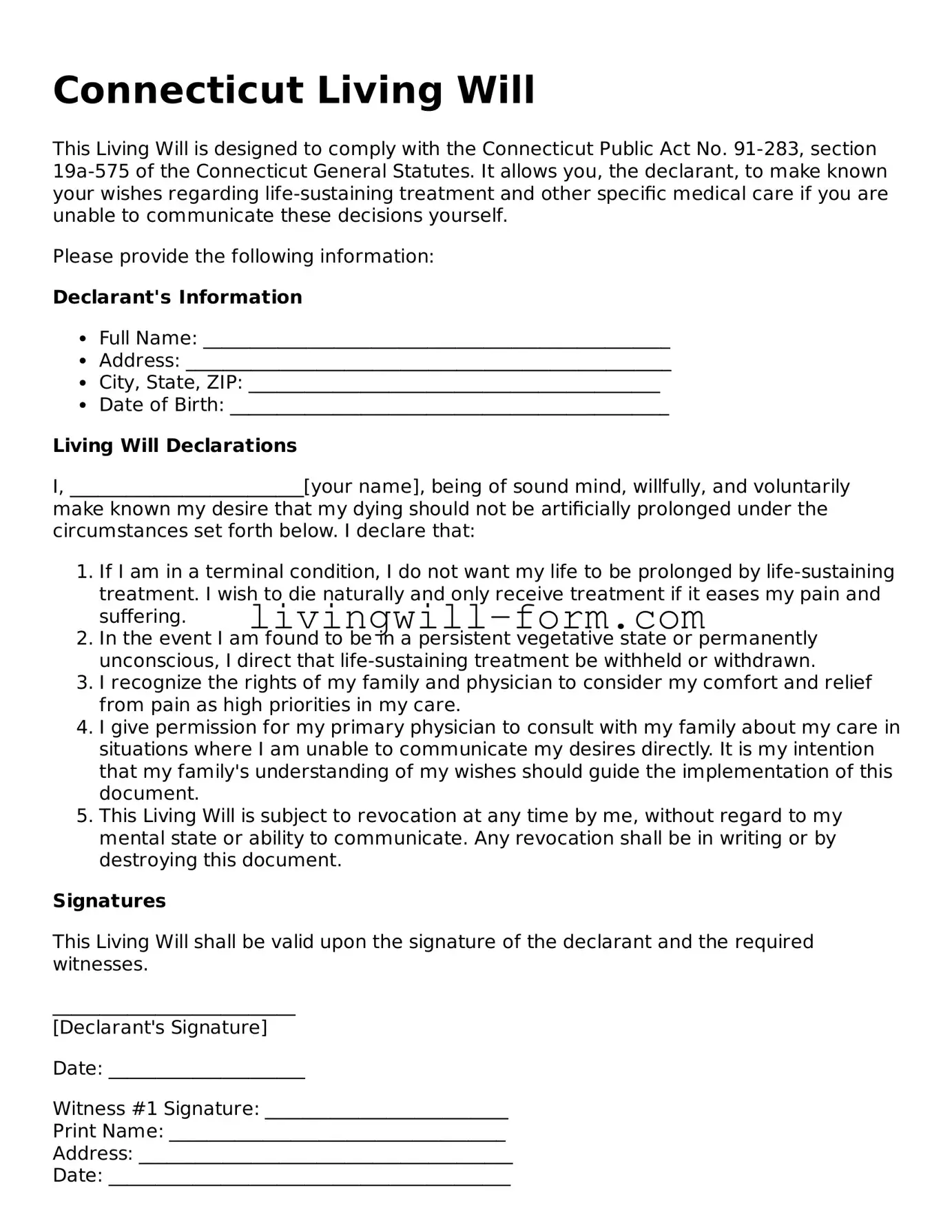Attorney-Verified Connecticut Living Will Template
The Connecticut Living Will form is a legally binding document that allows individuals to outline their preferences for medical care in the event that they are unable to communicate their wishes due to incapacity. This document serves as a critical component in planning for future health care decisions, ensuring that the person's wishes are respected and followed. It is a tangible expression of autonomy over one's body and future, guiding loved ones and healthcare providers through difficult decisions with clarity and conviction.
Access This Living Will

Attorney-Verified Connecticut Living Will Template
Access This Living Will

Access This Living Will
or
▼ Living Will PDF
Finish the form and move forward
Edit and finish your Living Will online fast.